Across faiths, the ability to gather is at the heart of their religious practice, so limits on public gatherings have reshaped what worship looks like since the World Health Organization declared the COVID-19 pandemic in March 2020.
This week, Jews are celebrating Passover or Pescach, a week-long observance which commemorates the deliverance of ancient Hebrews from slavery in Egypt. It began on Saturday evening, March 27, and continues through Sunday evening, April 4.
“This is the first time we have done something liturgically online for the second time, if that makes sense,” said Rabbi Erica Asch of Temple Beth El in Augusta. “And so I think that feels a little bit sad because I think most of us thought in March 2020 that we would be back together again in person by this time.”

Rabbi Erica Asch rolls the Torah in 2014 at Temple Beth El in Augusta. A year into the pandemic, the congregation again found itself celebrating Passover online. Joe Phelan/Kennebec Journal file
Every year, the congregation celebrates with a community Seder on the second day of Passover. A year ago, only weeks into the COVID-19 pandemic, a spring snowstorm on the day of the community Seder added to the sense of uncertainty as power outages meant people were dropped from the online celebration. Since then, virtually all activities at the synagogue have been held online, and congregation members have learned to use Zoom and have become comfortable and skilled in using it.
In contrast to a year ago, Asch said this year’s community Seder, held on Sunday, was joyful.
“We asked what people enjoyed most about the Seder and people from our congregation said it was being able to see folks from our congregation at Temple Beth El,” she said. “Even though we’re online, it still very much felt like a community experience, like something that we were doing together. We could see everyone’s faces and we had a chance to talk to each other in small groups and experience Passover together.”
The Hebrew School students had done pictures of the various parts of the Seder that were shared, and the students helped lead the service.
As more people get vaccinated, there is a sense of hope that’s growing. Asch said members were able to celebrate Seder with family members they have not been able to see in a while. “We’re feeling that not only can we use this technology to connect but that we’ll be able to meet in person again soon,” she said.
In Waterville, Colby College students were not on campus last Passover, having already been sent home as the pandemic made its presence felt in Maine. This year, Sarah Rockford, Colby Hillel director and program coordinator for Center for Small Town Jewish Life, helped students find a resemblance of a normal Passover. The campus community participated in a Seder on the first night of Passover this past Saturday.
Normally, Colby hosts a large community Seder with more than 100 people. Students learn to lead the Seders and work together to create three small-group Seders.
“This year, we felt like there was an opportunity to innovate because of the restrictions we’re following because of the pandemic,” Rockford said. “It wound up being incredible and a very profound experience for students because they can say they’ve led a Passover Seder.”
CHRISTIANS TO CELEBRATE
Celebrations in Christian denominations have also been shaped by public health restrictions on gatherings.

The outside of the Penney Memorial United Baptist Church in Augusta. Joe Phelan/Kennebec Journal Buy this Photo
Those restrictions are reflected in the central Maine churches of the Roman Catholic Diocese of Portland, in both their worship and observance of the traditions of Holy Week, which began on Palm Sunday, March 28, and continues through Easter this Sunday, April 4. As of March 26, Maine’s limit for indoor gatherings increased to 50% of building capacity, and outdoor gatherings to 75%.
“To have some people back this year and, of course, others participating via livestream, is a blessing,” said Bishop Robert Deeley of the Catholic Diocese. “I know that expanding our capacity for in-person worship at the start of Holy Week brought great joy to many parishioners who have been unable to attend Mass as they wish due to attendance restrictions.”
This year, there was no procession at Palm Sunday Mass, and instead of handing out palms during the service, they were made available for parishioners to pick up after Mass. Instead of having several people read the Passion, the story of Jesus’ arrival at Jerusalem and the events that followed, a single reader read the account. Holy Thursday Masses will not include Washing of the Feet and on Good Friday, no veneration of the Cross will take place. For the Easter Vigil, crowds won’t gather around the Easter fire and candles and hymnals won’t be handed out.
But even as aspects of the services have changes, Deeley said, the core has not.
“The world starts for us with the people who attend Mass, including those participating via livestream,” he said.
St. Joseph Maronite Church at 3 Appleton St. in Waterville will host 9 a.m. and 11 a.m. Divine Liturgy services on Easter Sunday with the Rev. James Doran, and those events will follow Center for Disease Control guidelines which include mask wearing and social distancing.
Church Subdeacon Stephen Crate said that 50% of the church’s congregation may attend services, which is about 80 people per service.
The church is in the midst of Holy Week this week, with the Divine Qurbono having been held Tuesday; the Rite of the Lamp held at 9 a.m. and another service to be held at 6 p.m. Wednesday; Maundy Thursday set for 6 p.m. Thursday; and Good Friday services to be held at 11 a.m. and 6 p.m. Friday. On Saturday, a Rite of Forgiveness will be held at 11:30 a.m. (confessions at 10:30 a.m.) and the Vigil of the Glorious Resurrection at 5 p.m.
Crate recommends people come early to each of its services during Holy Week, as the doors are locked promptly at the times they are scheduled. Easter, especially, is expected to be well-attended.
“The best I can tell people is to get there a half-hour early,” he said. “We do have ushers at the doors. If we reach the number (80) we close the doors.”
Many faith communities have met the challenge of limits on attendance by adding more services, and like the Diocese of Portland, setting aside traditional elements of the worship service and offering more services to accommodate all those who wish to attend in person.
“Last year, for us it was totally online,” said the Rev. Justin Frank, pastor at Penney Memorial United Baptist Church in Augusta, “and the first time in the history of our church building here that we were not having services on Easter. We’ve taken a step forward, but we’re not totally back to normal.”
A Maundy Thursday service will be held, but this year a Good Friday service will not. The church will hold a sunrise service as it usually does, and because it’s outside, it will be unchanged, he said. To accommodate all the people who want to attend an Easter service indoors, three have been scheduled. But to be able to clean between services, some elements have been trimmed although most elements remain.

The Rev. Justin Frank on Wednesday discusses changes to how Penney Memorial United Baptist Church in Augusta will celebrate Maundy Thursday and Easter Sunday services. Joe Phelan/Kennebec Journal Buy this Photo
“We are celebrating the events that we believe are at the center of our faith, the death and resurrection of Jesus Christ. There’s a reality of it being different, but overall, a lot of gratitude that we’re going to be together again,” Frank said, “and that we’re going to be able to celebrate the truths that we believe to be so important.”
Centerpoint Community Church, a nondenominational Christian church in Waterville, is hosting two services on Easter Sunday, one at 9 a.m. and another at 10:30 a.m.
Centerpoint Community Church, which is located at the former Sparetime Recreation bowling alley on West River Road, has 150 members. A livestreaming option is available on the church website.
“Attendance has obviously been down over the last few months, so we’re expecting more people than we’ve had,” Associate Pastor Zach Dickey said. “In order to make sure we are in compliance, we want to make sure we spread things out as much as we can to make sure.”
Send questions/comments to the editors.




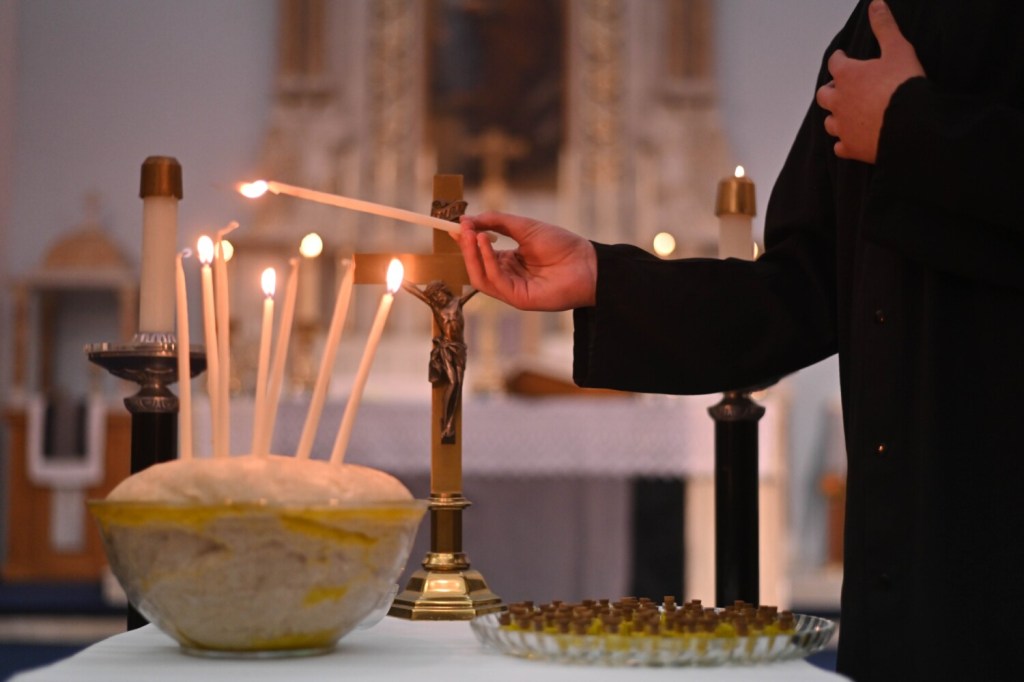
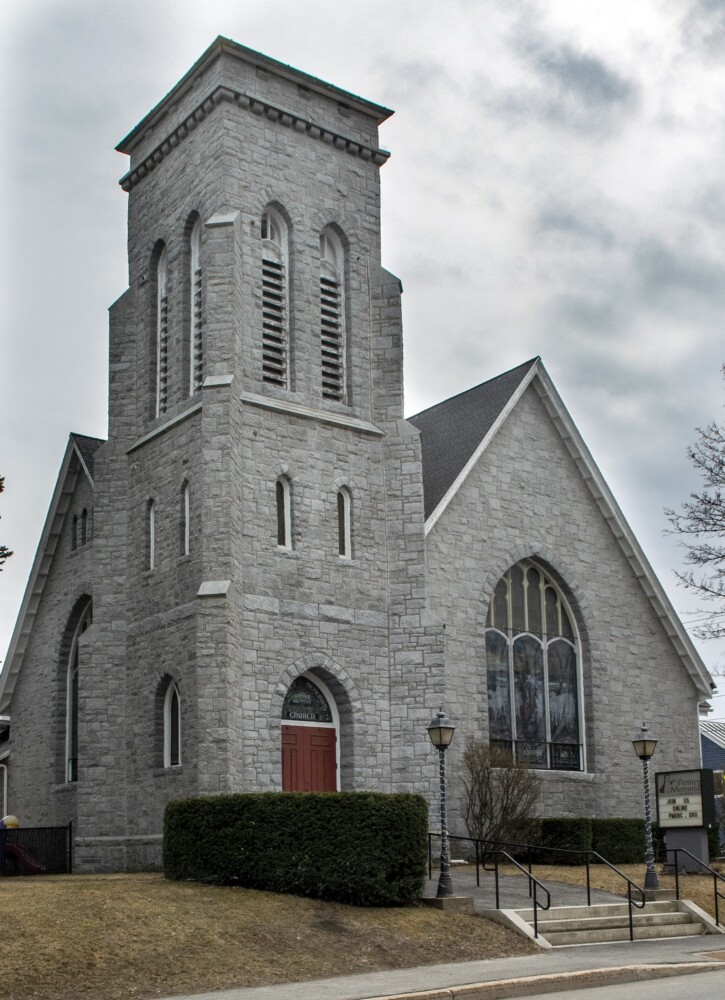
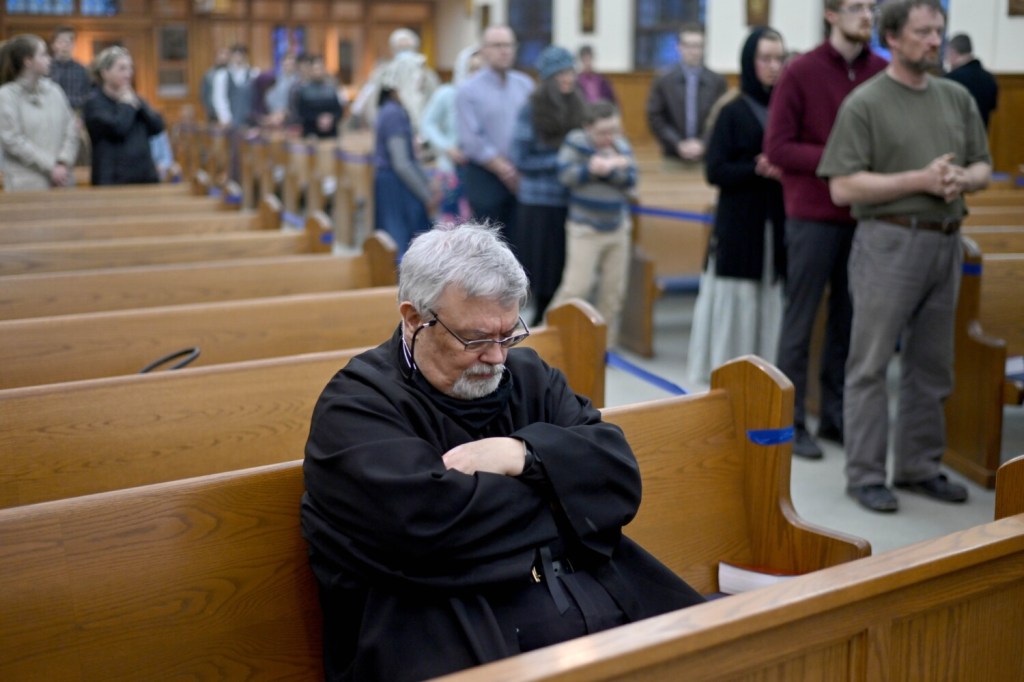

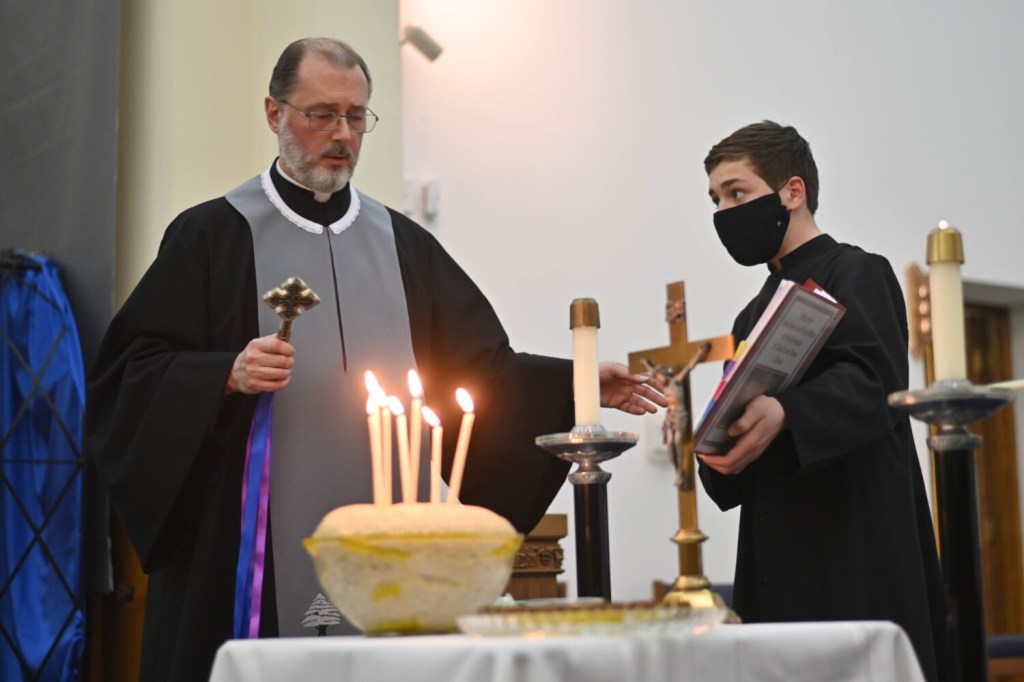
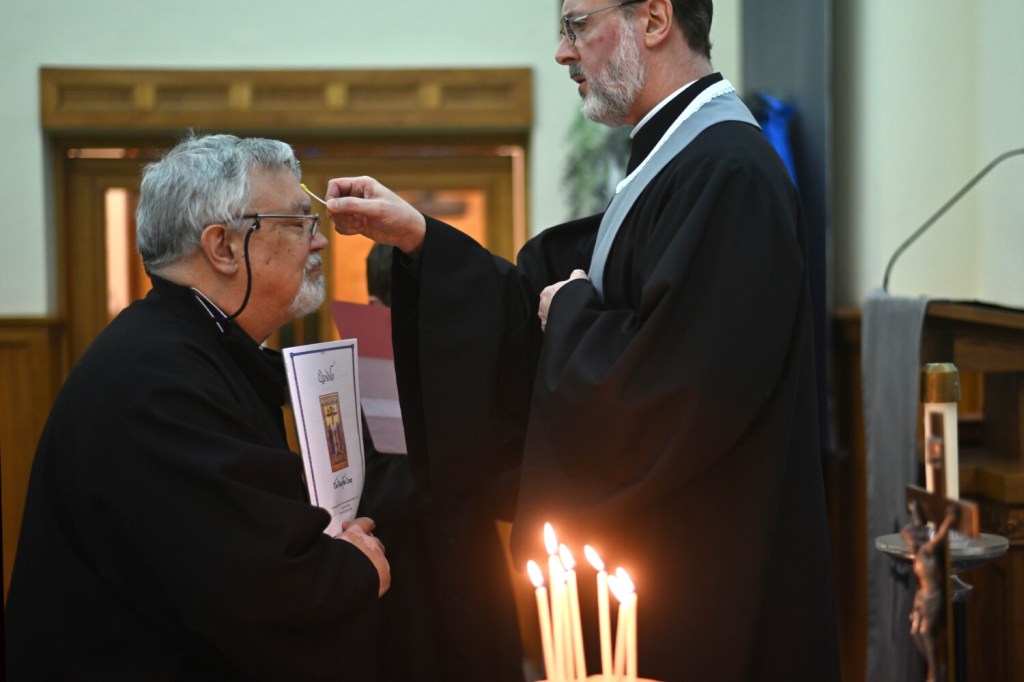




Comments are no longer available on this story